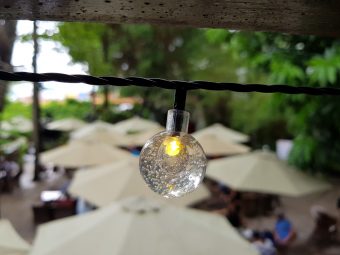A certain circle of experts and non-governmental organisations have begun to deal with the circular economy in the last five to seven years. However, most of the academic experts are not familiar with this term at all, and our interlocutor Vedad Suljic, Director at Regional Education and Information Centre for Sustainable Development in South-East Europe – non-governmental organisations from Bosnia and Hercegovina, claims that this is not strange.

EP: When did the circular economy become topical in our region and how would you rate its progress hitherto?
Vedad Suljic: If the actuality is measured by the number of published articles on portals or by the use of the term in conversation then we could say it is far from the actual. We have to be aware of the fact that our companies, regardless of their business and size, have significant problems in the essential part of their business, because they operate on unregulated markets. That situation often makes it impossible to think about anything else except how to survive on the market. This, of course, should not serve as an apology for not considering and applying circular economy, but, according to my judgement, it is one of the reasons why the circular economy is less popular than in developed countries.

Fotografija: Pixabay
EP: What is the percentage of recycling in FB&H, and do you know the statistics of former Yugoslav countries in this area? Which materials are most recycled?
Vedad Suljic: The Agency of Statistics of Bosnia and Herzegovina publishes periodic reports on waste management, and according to those data, 3.5 per cent of municipal waste was selectively collected in 2017. Thus, recycling of municipal waste is still lower than this number. On the other hand, waste collectors treat about 50 per cent of the waste collected in one of the possible ways (reduce, reuse, recycle, use as energy fuel), where recycling is one part. Unfortunately, there is no precise statistics on recycling is one part. Unfortunately, there is no exact statistics on recycling rates, although it is estimated at less than 10 per cent for all types of waste together. But, even without this statistics, it is clear that recycling in FB&H is at a very low level. Recycling begins on the spot on which waste is created, so proper sorting is needed. Unfortunately, this is significantly neglected in Bosnia, which makes recycling more expensive. A similar situation exists in other neighbouring countries, except in Croatia, which is the most advanced in this respect, mostly due to joining the European Union that in some way “forced” them to change their way of doing things. Traditionally recycled materials are the ones which are relatively easy collected such as metal, paper and certain types of plastics, and specific kind of hazardous waste, while glass is not recycled in all countries of the region (for example, glass is not recycled in FB&H, but it is collected for export in rare cases). Of course, in the new digital time, a large amount of electronic waste have been collected.
End-user only needs the product’s function that meets a particular necessity; thus we decide to buy the product. For this reason, it is logical that for a large number of articles, we do not necessarily have to be the owners, but only the users of this product.

Fotografija: Pixabay
EP: Do you have an overview of what is being done to increase the percentage of recycling in our region, because this percentage is significantly lower concerning the EU countries and what are the regulations that would manage to change this?
Vedad Suljic: Since all countries in the region are located in the EU’s vestibule (except Croatia), and that new rules are waiting for us, it is expected that this area will be changed and arranged sooner or later. How this will affect the overall economy and who will be the winner and the loser remains to be seen. One should bear in mind that waste is one of the most costly, if not the most expensive, chapter in the EU and that regulations are becoming more strict and more challenging to reach that is, more expensive every day. The more we are unprepared today, the higher costs we will pay tomorrow. It was precisely the waste sector which was one of the most important culprits that pushed Greece into economic crisis a few years ago. I believe that the situation in the area of waste management will change significantly in the next 5 to 10 years, especially in Serbia and Montenegro that are several steps ahead of FB&H in the context of EU accession.
Prepared by: Nevena Djukic
Read the whole interview in the new issue of the Energy portal Magazine on CIRCULAR ECONOMY, September-November 2018



